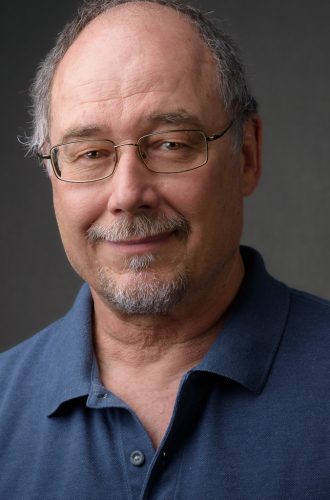-

-

-
S J Mihic
Associate Professor
Department of Neuroscience, College of PharmacyDeveloping a better understanding of how ligand-gated ion channels functionmihic@austin.utexas.edu
Phone: 512-232-7173
Office Location
MBB 1.148
Postal Address
2500 SPEEDWAY
AUSTIN, TX 78712-
John Mihic received his Ph.D. in Pharmacology from the University of Toronto in 1992. He did his postdoctoral work in the Department of Pharmacology at the University of Colorado Health Sciences Center, becoming an Instructor in that department in 1995. In 1997 he moved to the Department of Physiology & Pharmacology at the Wake Forest University School of Medicine, where he contributed to the formation of an NIH-funded Alcohol Research Center. In 1999 he won the 12th annual Young Investigators Award from the Research Society on Alcoholism. Dr. Mihic moved his lab to the University of Texas at Austin in May, 2000 where he is currently an associate professor in the Section of Neurobiology as well as a member of the Waggoner Center for Alcohol & Addiction Research and the Institutes for Neuroscience and Cellular & Molecular Biology. He served a four-year term on the ALTX-3 NIH study section.
Research Summary:
Research in my laboratory is focused on developing a better understanding of how ligand-gated ion channels function and how allosteric modulators act on these receptors. Specifically, we use molecular, biochemical and electrophysiological techniques to elucidate the processes underlying receptor activation and allosteric modulation. Most of our current research is conducted on the glycine receptor, a member of the cys-loop receptor superfamily, that also includes the GABA-A, nicotinic acetylcholine and 5HT-3 receptors.Recently we showed that electrostatic interactions between receptor subunits keep the glycine receptor in a closed-channel state in the absence of neurotransmitter. Breakage of these bonds constitutes an initial step in receptor activation, and the particular inter-subunit interaction we studied also contributes to determining the efficacies of agonists at the glycine receptor. Many allosteric modulators affect members of this receptor superfamily including a number of sedative, hypnotic and anaesthetic agents, such as barbiturates, benzodiazepines, alcohols and volatile and steroidal anaesthetics.
Using whole-cell and single-channel electrophysiology, combined with receptor subunit mutagenesis, we are conducting studies to determine the molecular mechanisms underlying ethanol and volatile anesthetics enhancement of glycine receptor function. In previous work we identified amino acid residues in the second and third transmembrane domains of subunits of GABA-A and glycine receptors that control alcohol and volatile anaesthetic enhancement of receptor function.
An emerging area of research interest in the lab is the use of phage display to identify novel modulators of ion channels. We recently isolated a dodecapeptide as the first potent, efficacious and highly specific allosteric modulator of glycine receptor function. Peptides specifically binding to various isoforms of GABA-A receptors have also been discovered.
-
2014 Cornelison GL, Mihic SJ, Contaminating levels of zinc found in commonly-used labware and buffers affect glycine receptor currents. Brain Res. Bull. 100:1-5 view
2013 Kirson D, Cornelison GL, Philpo AE, Todorovic J, Mihic SJ, Physiological concentrations of zinc reduce taurine-activated GlyR responses to drugs of abuse. Neuropharmacology. 75:286-94 view
2012 Tipps ME, Iyer SV, Mihic SJ, Trifluoroacetate is an allosteric modulator with selective actions at the glycine receptor., Neuropharmacol. 63: 368-373 view
2012 Kirson D, Todorovic J, Mihic SJ., Positive Allosteric Modulators Differentially Affect Full versus Partial Agonist Activation of the Glycine Receptor., J. Pharmacol. Exp. Ther. 342: 61-70 view
2012 Borghese CM, Blednov YA, Quan Y, Iyer SV, Xiong W, Mihic SJ, Zhang L, Lovinger DM, Trudell JR, Homanics GE, Harris RA, Characterization of Two Mutations, M287L and Q266I, in the α1 Glycine Receptor Subunit That Modify Sensitivity to Alcohols., J. Pharmacol. Exp. Ther. 340: 304-316 view
2010 Welsh BT, Kirson D, Allen HM, Mihic SJ., Ethanol enhances taurine–activated glycine receptor function, Alcoholism: Clin. Exp. Res. 34: 1634-1639 view
2010 McCracken LM, Trudell JR, Goldstein BE, Harris RA, Mihic SJ, Zinc enhances ethanol modulation of the alpha1 glycine receptor, Neuropharmacology 58: 676-681 view
2010 Todorovic J, Welsh BT, Bertaccini EJ, Trudell JR, Mihic SJ, Disruption of an intersubunit electrostatic bond is a critical step in glycine receptor activation, Proc. Natl. Acad. Sci. USA 107: 7987-7992 view
2010 Tipps ME, Lawshe JE, Ellington AD, Mihic SJ, Identification of novel specific allosteric modulators of the glycine receptor using phage display, J. Biol. Chem. 285: 22840-22845 view
2009 Welsh BT, Goldstein BE, Mihic SJ, Single-channel analysis of ethanol enhancement of glycine receptor function, J. Pharmacol. Exp. Ther. 330: 198-205 view
2008 Harris RA, Trudell JR, Mihic SJ, Ethanol's molecular targets, Science Signalling 1: 1-5 view
2007 Dupre ML, Broyles JM, Mihic SJ, Effects of a mutation in the TM2-TM3 linker region of the glycine receptor alpha1 subunit on gating and allosteric modulation, Brain Res. 1152: 1-9 view
2006 Roberts MT, Phelan R, Erlichman BS, Pillai RN, Ma L, Lopreato GF, Mihic SJ., Occupancy of a single anesthetic binding pocket is sufficient to enhance glycine receptor function, J. Biol. Chem. 281: 3305-3311 view
1998 Wick MJ, Mihic SJ, Ueno S, Mascia MP, Trudell JR, Brozowski SJ, Ye Q, Harrison NL, Harris RA, Mutations of gamma-aminobutyric acid and glycine receptors change alcohol cutoff: evidence for an alcohol receptor?, Proc. Natl. Acad. Sci. 95: 6504-6509 view
1997 Mihic SJ, Ye Q, Wick MJ, Koltchine VV, Krasowski MD, Finn SE, Mascia MP, Valenzuela CF, Hanson KK, Greenblatt EP, Harris RA, Harrison NL, Sites of alcohol and volatile anaesthetic action on GABA(A) and glycine receptors., Nature 389: 385-389 view
-
- Research Society on Alcoholism 12th Annual Young Investigators Award (1999).
- University of Texas at Austin, Institute for Cellular & Molecular Biology Fellow (2002-2005).
- The College of Natural Sciences Teaching Excellence Award, University of Texas at Austin (2003)
-














